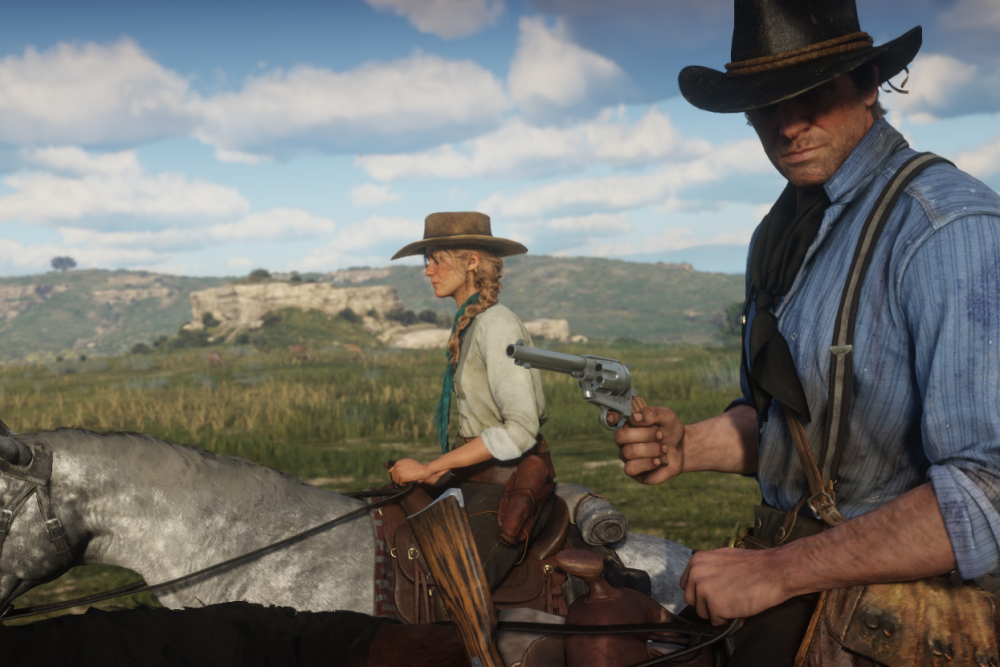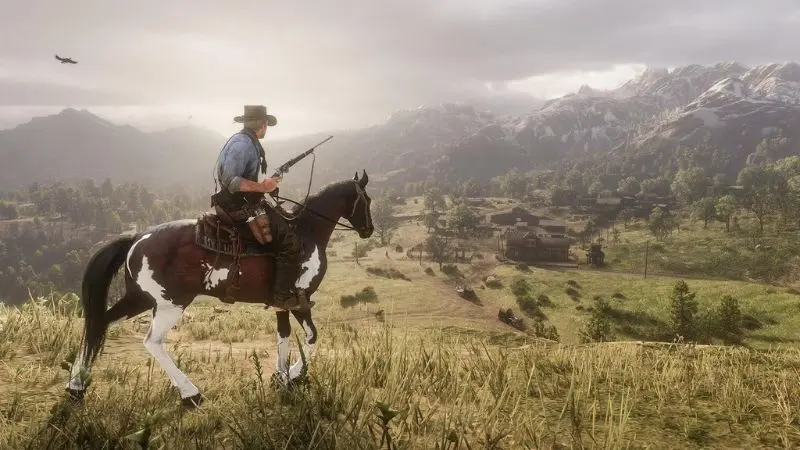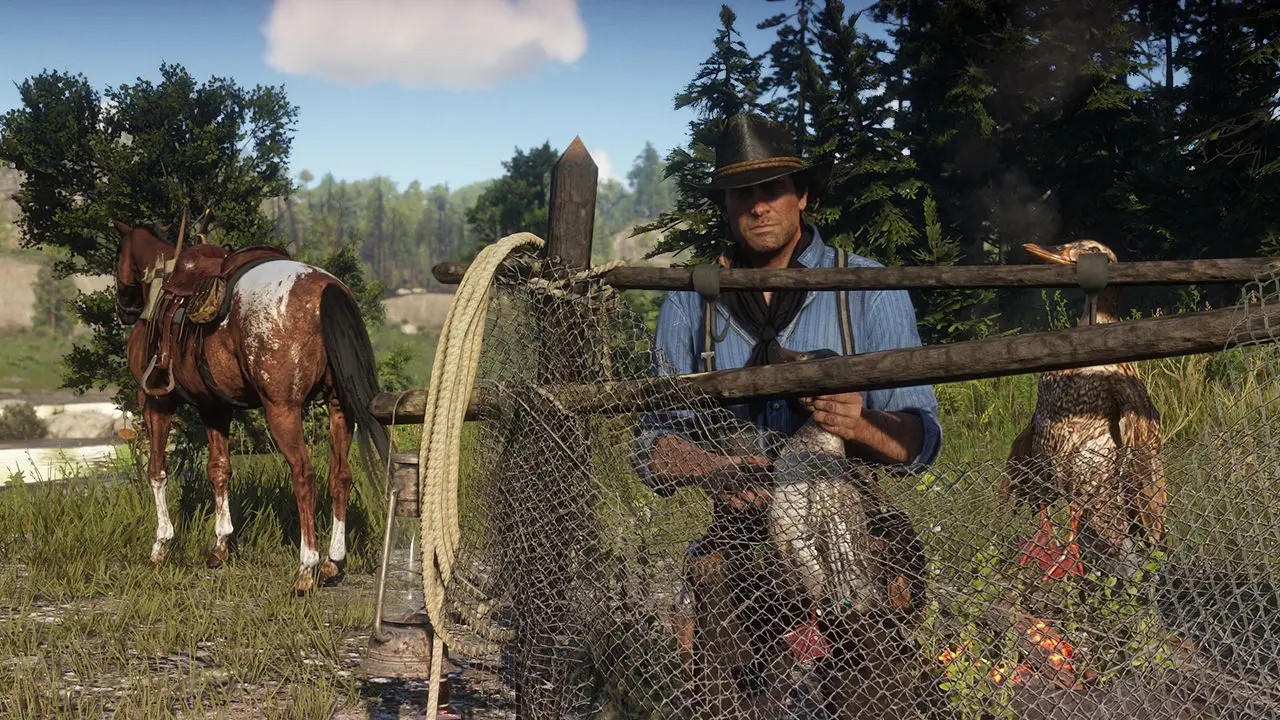Popular Now
Introduction
Red Dead Redemption 2 is not merely a Western-themed action-adventure game; it is an introspective, morally nuanced tale centered around Arthur Morgan, a man caught between loyalty, survival, and personal redemption. One of the most profound elements of the game is the Honor system—a mechanic that gauges the player's ethical compass and decisions. Far beyond being a simple binary of "good" versus "bad," the Honor system influences gameplay, interactions, and even the narrative's emotional weight. This article dives deep into the multifaceted issue of honor and morality in Red Dead Redemption 2, breaking down how Arthur’s internal conflict mirrors the player's choices and what it means for the story at large.
Arthur Morgan’s Introduction to Morality
From the beginning, Arthur Morgan is introduced as a hardened outlaw raised under Dutch van der Linde's ideology—freedom from government and a life lived on their own terms. However, the backdrop of a changing America forces Arthur to reflect on what he truly values. This transition sets the foundation for his moral struggle throughout the game.
Arthur is not inherently evil, but rather a product of his environment. As the gang faces increased external pressure and internal disillusionment, Arthur begins questioning his loyalty and re-evaluating his sense of right and wrong. This emerging consciousness drives much of the player’s moral decision-making.

The Mechanics of the Honor System
The Honor system in RDR2 subtly but powerfully alters how the game unfolds. Killing innocents, robbing, or engaging in senseless violence lowers your honor, while helping strangers, sparing lives, and donating to camps raises it.
The player's Honor level affects:
-
NPC dialogue and interactions
-
Cutscene variations
-
Prices at shops and stores
-
The ending sequences and Arthur's final fate
These consequences embed ethical decisions into the core gameplay loop, making morality not just thematic but systemic.
The Fork in the Trail: Key Moments of Ethical Dilemma
Throughout the game, the player is faced with pivotal moments where Arthur's Honor is tested. These moments are more than choices—they are reflections of the player’s moral identity.
Examples include:
-
Deciding to spare or kill O’Driscoll gang members
-
Choosing to help a widow with her farm or ignore her plight
-
Turning in or helping a captured criminal
These moments have no immediate gameplay consequence but shape the world’s perception of Arthur, crafting a living morality tale.
Arthur’s Personal Evolution Through Illness
A major turning point in the game is Arthur’s diagnosis with tuberculosis. This revelation is a narrative masterstroke, prompting introspection and an urgent rethinking of life’s value.
As Arthur grows sicker, he becomes more reflective, often speaking about redemption and the legacy he will leave behind. This phase of the game coincides with some of the deepest Honor-based divergences, where Arthur’s transformation—driven by player actions—becomes most pronounced.

Contrasts Between Arthur and Dutch
Arthur’s moral awakening stands in sharp contrast to Dutch’s descent into paranoia and ego. Where Arthur begins to see the cost of their outlaw life on innocent people, Dutch becomes more erratic and violent.
This dichotomy emphasizes that honor is not static; it’s responsive to experience. Dutch remains blinded by idealism, while Arthur adapts, recognizing that true freedom might come from doing the right thing—even if it means dying for it.
The Impact of Honor on Arthur’s Legacy
The most profound impact of Honor is seen in Arthur's final chapters. A high Honor level results in peaceful final scenes, where Arthur expresses regret and a desire for peace. Low Honor leads to more bitter and aggressive parting moments.
The difference isn’t just visual—it redefines the character. High-Honor Arthur becomes a tragic hero. Low-Honor Arthur remains a cautionary tale. The story you experience is tailored by the ethics you’ve enacted throughout the game.
Narrative Design: Rockstar’s Moral Sandbox
Rockstar Games designed RDR2 with ambiguity in mind. The game doesn't penalize players for low Honor with game overs or punishments. Instead, it reflects their choices back at them through environmental cues, altered music, and character tone.
This allows for true role-playing: players create the Arthur Morgan they believe in, from ruthless outlaw to reluctant savior. It's this openness that makes the moral dimension of RDR2 so effective and so personal.
Side Missions and Morality: The Devil is in the Details
Honor isn't just reserved for the main story. Side missions often reveal as much about Arthur’s soul as the central plot. Interactions with strangers provide opportunities for kindness or cruelty.
Notable examples include:
-
Helping a disabled war veteran
-
Saving a snakebite victim
-
Choosing to rob or rescue stagecoaches
Each of these micro-decisions contributes to the macro-narrative, reinforcing the idea that morality is made of everyday choices, not grand gestures.

Players’ Reactions and Interpretations
Fan communities are divided yet fascinated by the role of Honor. Some players embrace the outlaw lifestyle, arguing that Arthur’s fate is sealed regardless of morals. Others strive for redemption, citing the emotional resonance of a high-Honor ending.
This range of interpretations is a testament to Rockstar’s nuanced storytelling. The Honor system doesn't tell players what to think; it gives them the tools to tell their own story.
Final Moments and the Epilogue
The culmination of Arthur’s Honor journey shapes not only his death but John Marston’s epilogue. A high-Honor Arthur inspires John to build a better life, tying the narrative to Red Dead Redemption’s original theme of redemption.
Conversely, a low-Honor Arthur leaves a shadow of bitterness that haunts John. In either path, Arthur’s moral compass echoes beyond his death, proving that character choices don’t end with the credits.
Conclusion
In Red Dead Redemption 2, honor is more than a stat—it is the soul of the game. Arthur Morgan’s journey from loyal enforcer to reflective man confronting his mortality is one of the most compelling arcs in video game history. The decisions players make don’t just alter cutscenes; they alter meaning, tone, and legacy. The Honor system ensures that each playthrough is not just a different path but a different person. As Arthur rides toward his inevitable fate, the real story lies not in how he dies—but in how he chooses to live.

















